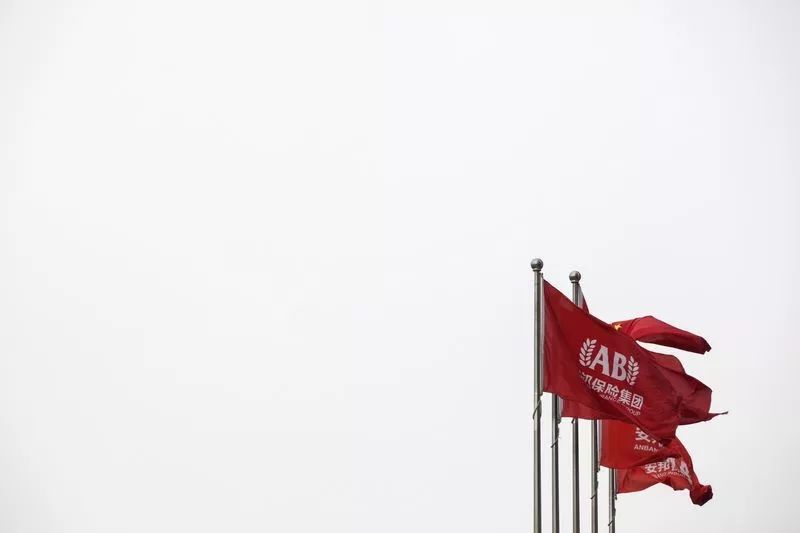 站内搜索:
站内搜索:
导读
2008年金融危机前后,美国监管机构和政客做出了许多糟糕的决定,但他们最终意识到他们不能也不应该救助所有陷入困境的公司和个人。最后,他们任由许多银行倒闭,房价暴跌。彭博认为虽然这种做法是痛苦的,但它允许资产价值调整,使美国缓慢而稳定的经济复苏一直持续到今天。但在中国,维持市场稳定仍然是中国政府的首要任务。

上周,中国保监会宣布接管安邦保险集团,唯一令人惊讶的是这竟然花了这么长的时间。去年,安邦保险集团被告知要出售海外资产,令其创始人身陷囹圄,银行被勒令停止出售其产品。那么关于中国经济以及中国政府尝试打击债务,最近的事情向我们说明了什么?
安邦保险集团通常被认为是一家保险公司,但这是有误导性的。虽然该公司确实提供如财产险和意外险等普通产品,但真正推动其增长的是结构异常的人寿保险产品。2016年底,就在监管机构介入前不久,财产险和意外险保费仅占该集团收入的4%,而人寿保险保费占了96%。
这一业务的增长甚至使习惯于令人难以置信的发展的中国分析人士感到震惊。2010年到2016年期间,安邦的年度人寿保险保费收入从100万元暴增到1142亿元,总增长幅度达11000倍。即使是在经济快速扩张时期,593%的年增长率也是惊人的。
问题在于,寿险产品实际上是高收益的债务工具,投资者可以在两年内退出保险部分。部分产品收益率在前三年超过5%,这实际上使安邦成为一个高杠杆投资者,承担重大风险以弥补其资本成本。基本上,客户将贷款延伸到安邦,而安邦用它来支付过高的资产。因为约有3500万客户要求退款,监管机构终于介入以防止发生可能导致严重动荡的市场崩溃。
Gretchen Morgenson和Joshua Rosner在2011年著作的Reckless Endangerment这本书里指出,2008年美国次贷危机爆发的部分原因是美国政府和华尔街之间不正常的共生关系。由于提高住房拥有率是政策制定者的明确目标,当银行做出可疑贷款的时候,监管机构便有动力寻求其他方式。
安邦的崛起跟这个情况类似。不到两年前,中国鼓励国内企业进行海外投资,安邦是这些企业中的一家。政府甚至建议这些企业重点关注技术、房地产和金融等行业。由于这一非官方的授权,安邦通常是在不利的情况下在世界各地购买资产。安邦的债务水平意味着该公司需要获取接近10%的资产回报率以履行其义务。由于其资产被出售,财务状况稳定,现在金融监管机构将管理该公司至少一年。
在2008年金融危机前后,美国监管机构和政客做出了许多糟糕的决定,但他们最终意识到他们不能也不应该救助所有陷入困境的公司和个人。最后,他们任由许多银行倒闭,房价暴跌。这种做法是痛苦的,但它允许资产价值调整,使缓慢而稳定的经济复苏一直持续到今天。
不要指望中国也这样做。尽管有关于改善风险定价和允许更多公司倒闭的言论,但政府仍在挽救企业和消费者的冒险行为。最后,投资者表现得似乎债务有隐性的担保,房价将永远会上涨近10%。这将会被证明是代价昂贵的做法,安邦和另一个摇摇欲坠的企业海航集团公司合并持有的资产估计在4500亿美元和5000亿美元之间。但对中国政府来说,金融成本远低于允许重大破产的政治风险,也没有迹象表明这一点很快就会发生改变。
When the China Insurance Regulatory Commission announced last week that it was seizing Anbang Insurance Group Co., the only surprise was that it took so long. Last year, the company was told to sell its overseas assets, its founder was placed behind bars, and banks were ordered to stop offering its products. So what, if anything, does this latest incident tell us about China's economy and its attempt to crack down on debt?
Anbang is often referred to as an insurance company, but this is misleading. Although the company does offer some run-of-the-mill products, such as property and casualty insurance, what really drove its growth were unusually structured life-insurance products. At the end of 2016, shortly before regulators intervened, property and casualty premiums made up a mere 4 percent of the group's revenue. Life insurance made up 96 percent.
The growth in this business stunned even China analysts accustomed to tales of fabulous growth. From 2010 to 2016, Anbang's annual life-insurance premium revenue increased from 1 million yuan to 114.2 billion yuan, or total growth of 11 million percent. Even during a period of rapid economic expansion, annualized growth of 593 percent is amazing.
The problem was that the life-insurance products were actually high-yielding debt instruments; investors could opt out of the insurance portion in as little as two years. With some products yielding more than 5 percent in the first three years, this essentially made Anbang a highly leveraged investor taking on significant risks to cover its cost of capital. Customers were basically extending loans to Anbang that it used to overpay for assets. Regulators finally stepped in to prevent a collapse that could have led to significant instability -- with some 35 million customers demanding their money back.
In their 2011 book "Reckless Endangerment," Gretchen Morgenson and Joshua Rosner note that the 2008 subprime mortgage crisis in the U.S. was driven partly by a perverse symbiotic relationship between Washington and Wall Street. Because boosting homeownership was an explicit goal of policy makers, regulators had an incentive to look the other way as banks made dubious loans.
Anbang's rise had a similar dynamic. Less than two years ago, it was one of many companies that China was urging to invest internationally. The government even suggested industries for these behemoths to focus on, such as technology, real estate and finance. Emboldened by this unofficial mandate, Anbang went forth and bought up assets around world, often on disadvantageous terms. Its debt levels implied that the company needed to earn a return on assets of close to 10 percent to meet its obligations. Now financial regulators will run the company for at least a year as its assets are sold and its finances are stabilized.
American regulators and politicians made many bad decisions before and after the 2008 financial crisis, but they ultimately realized they couldn't -- and shouldn't -- bail out all firms and individuals that were in trouble. Eventually, they allowed many banks to fail and home prices to plummet. This was painful, but it allowed for asset values to adjust and enabled a slow but steady recovery that lasts to this day.
Don't expect China to do the same. Despite rhetoric about improving risk pricing and allowing more corporate failures, the government continues to bail out risky behavior by firms and consumers. Investors consequently act as though debt is implicitly guaranteed and home values will rise at near double-digit rates in perpetuity. This will prove costly: Anbang and HNA Group Co., another teetering conglomerate, combined hold assets estimated at between $450 billion and $500 billion. But for the Chinese government, financial costs remain far less concerning than the political risks of allowing significant bankruptcies -- and there's no indication that will change any time soon.